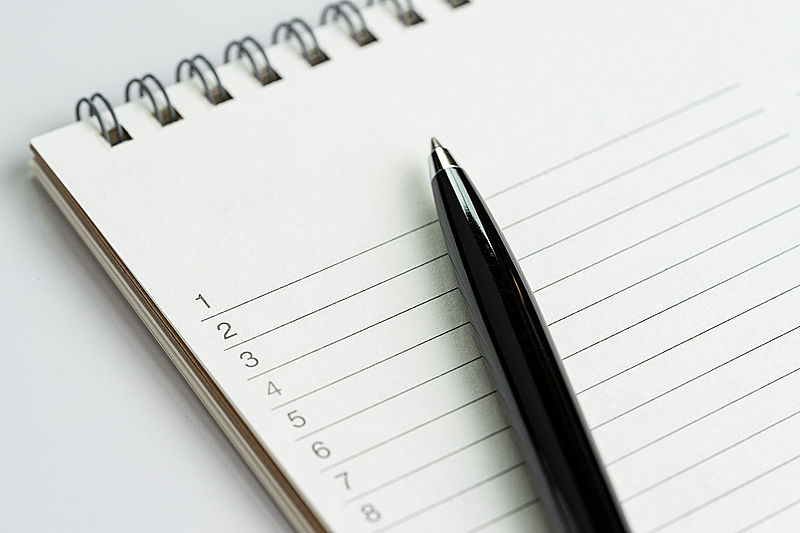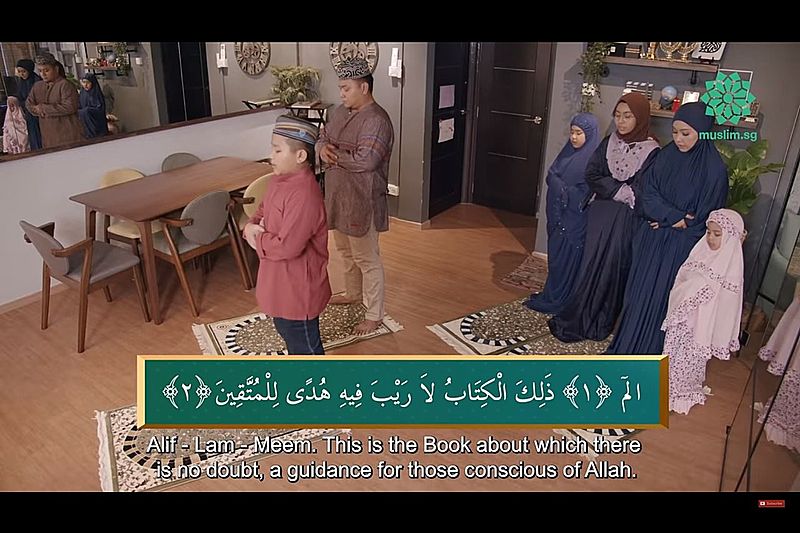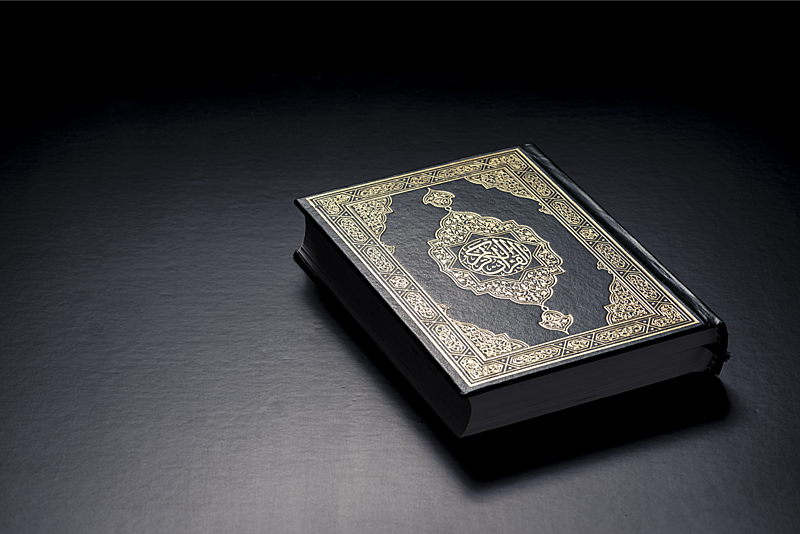Ramadan questions and answers from Instagram
Ramadan is often seen as a booster to reach greater heights and for some others, a breakthrough to get back on track. That’s why everyone consciously strives to be better in this blessed month in hopes that this gift won’t go to waste.
While some may be able to enliven their best Ramadan experience yet, there are those who are tied to their responsibilities which do not allow them to perform the additional acts of worship or perhaps there might also be those who do not know how best to observe Ramadan, given their respective circumstances.
Last year, we compiled a list of questions on Ramadan from Google’s most searched questions on the internet. Read the full article here: https://muslim.sg/articles/frequently-asked-questions-during-ramadan
This year is even closer to you. We asked our IG followers about the questions that they might have on Ramadan. Here are the questions:
Full-Time employee + Part-Time university student here. How can I maximise the little time I have for ibadah in Ramadan?
Others have also asked, “How can I make full use of Ramadan unlike any other months in Islam?”
There are definitely many ways for us to maximise our ‘ibadah during the month of Ramadan. The first is to fulfil our obligatory acts such as the five daily prayers, fasting in Ramadan and zakat. This would also mean that we would have to ensure we get enough nourishment and sleep as well.
Once we have maintained a consistent pace, we may further maximise our Ramadan experience by looking out for additional Sunnah acts, such as the Sunnah prayers, charity (Sadaqah) and reading the Quran. We should also balance our time with communal acts of worship, like reciting the Quran collectively or helping each other in preparing the meals to break our fast.

This hierarchy of priorities in our ‘ibadah can be seen in the hadith mentioned by our beloved Prophet s.a.w:
وَمَا تَقَرَّبَ إِلَىَّ عَبْدِي بِشَىْءٍ أَحَبَّ إِلَىَّ مِمَّا افْتَرَضْتُ عَلَيْهِ، وَمَا يَزَالُ عَبْدِي يَتَقَرَّبُ إِلَىَّ بِالنَّوَافِلِ حَتَّى أُحِبَّهُ، فَإِذَا أَحْبَبْتُهُ كُنْتُ سَمْعَهُ الَّذِي يَسْمَعُ بِهِ، وَبَصَرَهُ الَّذِي يُبْصِرُ بِهِ، وَيَدَهُ الَّتِي يَبْطُشُ بِهَا وَرِجْلَهُ الَّتِي يَمْشِي بِهَا، وَإِنْ سَأَلَنِي لأُعْطِيَنَّهُ، وَلَئِنِ اسْتَعَاذَنِي لأُعِيذَنَّهُ
The most beloved thing with which My servant comes nearer to Me is what I have enjoined upon him (obligatory acts - Fardhu), and My servant keeps on coming closer to Me through performing Nawafil (supererogatory acts - Sunnah) till I love him. And when I love him, I become his hearing with which he hears, his seeing with which he sees, his hand with which he grips, and his leg with which he walks; and if he asks (something) from Me, I will give him, and if he seeks My protection (Refuge), I will protect him
(Sahih Al-Bukhari)
When most of our time is already occupied with work or studies, it is important that we find meaning in what we do. Allah understands our sacrifices. If we work or study with the intention of being close to Allah, even if our commitments may seemingly appear to be unrelated to ritual acts of worship, know that our work or study can turn into an ‘ibadah by itself. This includes other matters in life as well. The Prophet s.a.w. said:
إِنَّمَا الْأَعْمَالُ بِالنِّيَّاتِ وَإِنَّمَا لِكُلِّ امْرِئٍ مَا نَوَى
Verily, deeds are only with intentions. Verily, every person will have only what they intended
(Sahih Al-Bukhari)
For part-time students working full-time, some practical suggestions are:
- Zikir: A consistent observance of Zikr allows us to include fluidly in between our commitments while also develop our sense of consciousness for His presence.
Some of the Zikir that are encouraged to be made in this month are:
أَشهَدُ أَن لاَ إِلَهَ إِلاَّ الله، أَستَغفِرُ الله، نَسأَلُكَ الجَنَّةَ ونَعُوذُ بِكَ مِنَ النَّار
Bear witness that there is no god but Allah, I seek forgiveness from Allah, we ask you (Oh Allah) for Paradise and we seek refuge with you from the Hellfire.
اللَّهُمَّ إِنَّكَ عَفُوٌّ كَرِيمٌ تُحِبُّ العَفْوَ فَاعْفُ عَنَّا
Oh Allah, You are indeed Forgiving, Generous and love to forgive, so forgive me.
- Terawih prayers: The Sunnah Terawih prayers are not obligatory, but they are only available to be observed during the month of Ramadan. You may pray eight raka’at of terawih prayers by yourself after Isyak or after your commitments at night and before heading to bed.
Read and watch the video: https://muslim.sg/articles/5-things-you-need-to-know-about-terawih-prayers
If we are unable to complete reciting the entire Quran during Ramadan, it is ok. Every recitation of the Quran counts too.
مَن قَرَأَ حَرْفًا مِنْ كِتَابِ اللَّهِ فَلَهُ بِهِ حَسَنَةٌ وَالْحَسَنَةُ بِعَشْرِ أَمْثَالِهَا لاَ أَقُولُ الم حَرْفٌ وَلَكِنْ أَلِفٌ حَرْفٌ وَلاَمٌ حَرْفٌ وَمِيمٌ حَرْفٌ
Whoever recites a letter from Allah's Book, then he receives the reward from it, and the reward of ten the like of it. I do not say that Alif Lam Mim is a letter, but Alif is a letter, Lam is a letter and Mim is a letter
(Sunan At-Tirmizi)

The effort we make counts and Allah is All-Generous. We may also want to gather a few like-minded friends and family to distribute the Quranic chapters or pages with the intention to complete the Quran collectively and support one another with motivations and reminders.
- Buy or prepare food for others to break their fast
The solution to maximising our ‘ibadah in Ramadan is to manage time well. It is even better when we have our friends and family to support one another. Therefore, we should start to plan well and try our best to achieve our goal.
Would planning to give charity daily during the fasting month via PayNow will be considered overdoing it?
Charity is a good deed in Islam. The companions used to look forward to it and in some instances competed with one another to perform charity too. The Prophet s.a.w. himself increased his works of charity in the month of Ramadan:
كَانَ النَّبِيُّ صلى الله عليه وسلم أَجْوَدَ النَّاسِ بِالْخَيْر، وَكَانَ أَجْوَدُ مَا يَكُونُ فِي رَمَضَانَ
The Prophet was the most generous amongst the people, and he was even more generous in the month of Ramadan
(Sahih Al-Bukhari)
There is no limit to doing good deeds, but it is also important that we understand our circumstances and fulfil our respective responsibilities. The Prophet s.a.w. prohibited extreme tendencies even in the form of an ‘ibadah. A hadith narrated by Imam Al-Bukhari tells us the story of three companions who wanted to prove themselves by expressing zealousness and devotions that bear resemblance to monkhood and was in discordance with the Prophetic tradition of balance. The Prophet s.a.w. later met them and dismissed their unsound zeal saying:
فَمَنْ رَغِبَ عَنْ سُنَّتِي فَلَيْسَ مِنِّي
Whoever turns away from my Sunnah does not belong to me
(Sahih Al-Bukhari)
On a different note, with the development of technology, we are now able to do charity for mosques through digital means including PayNow. For more information on how to donate, visit https://ourmasjid.sg/

While we may look forward to making donations, Sadaqah which is the Islamic term for charity is more than just donations. Every good deed performed that benefits another or removes harm from a public space is considered to be charity. Knowing this can contribute to our Ramadan experience more significantly.
كُلُّ مَعْرُوفٍ صَدَقَةٌ
Every good deed is charity
(Sahih Muslim)
Although Sadaqah is encouraged in Islam, Zakat is an obligation that we have to be mindful of. It is obligatory to pay the Zakat Fitrah in Ramadan while the Zakat from our wealth is an annual obligation.
Better to rinse mouth during wudhu while fasting, or better to do wajib only?
While fasting, it is permissible to rinse the mouth as a sunnah act during Wudhu (ablution). However, it is disliked (makruh) if there is excessiveness in the rinsing.
There are also enquiries with regards to using flavoured mouthwash or toothpaste during fasting hours. These are matters outside of Wudhu. Using toothpaste to brush teeth or rinsing with flavoured mouthwash per se does not invalidate the fast. It is permissible to use the mentioned items even during fasting hours, as long as it does not reach the throat and into the body cavities. If the toothpaste or the flavoured mouthwash were to reach beyond the throat, it will invalidate the fast. Hence, it is best to use both before or after the fasting hours instead.
How to Qadha’ puasa from years ago?
It is obligatory to Qadha’ - pay back the missed fast days in Ramadan. We may want to narrow down the days we missed from fasting in Ramadan by looking at the previous years from the age of puberty and then gradually count the days approximately up until the present year. We should be able to come up with a tentative number and work towards it.
With the accumulated number of missed fasting days, it is not obligatory to Qadha consecutively. In other words, we may divide these days accordingly.
We are also not obliged to hasten the Qadha. However, it is not encouraged to often delay the Qadha as we do not know if we have another opportunity to pay for the missed fasting days again. What we can do is to pay them gradually at a comfortable and consistent pace.
For Qadha that also entails fidyah payment, you may visit the muis website to conveniently calculate the amount according to the different circumstances at https://www.muis.gov.sg/Our-Services/Fidyah
What are some simple things new converts can do besides zikir?
While Ramadan may be a bit challenging for some new converts, there are also those who have managed to observe their best Ramadan experience yet and are looking ahead to fulfil more.
Zikir is indeed a great ‘ibadah to start with since it is generally easy to observe even amidst busy schedules. Other forms of ‘ibadah that can help your gradual development is Sadaqah - charity. You can also consider sponsoring meals for those who are breaking their fast at Maghrib time. There is even a special reward for it:
مَنْ فَطَّرَ صَائِمًا كَانَ لَهُ مِثْلُ أَجْرِهِ غَيْرَ أَنَّهُ لاَ يَنْقُصُ مِنْ أَجْرِ الصَّائِمِ شَيْئًا
Whoever provides the food for a fasting person to break his fast with, then for his is the same reward as his (the fasting person's), without anything being diminished from the reward
(Sunan At-Tirmizi)
Just sponsoring or preparing the meals for them will grant us completely the same reward as the person who is fasting.

Ramadan is also known to be called the month of Al-Quran. You may want to invest your time in knowledge especially in learning how to recite the Quran and understanding its meanings. Ramadan and the Quran are closely affiliated to one another. Allah s.w.t. chooses Ramadan above the other months to decent the Quran.
شَهْرُ رَمَضَانَ ٱلَّذِىٓ أُنزِلَ فِيهِ ٱلْقُرْءَانُ هُدًى لِّلنَّاسِ وَبَيِّنَـٰتٍ مِّنَ ٱلْهُدَىٰ وَٱلْفُرْقَانِ
Ramaḍan is the month in which the Quran was revealed as a guide for humanity with clear proofs of guidance and the standard (to distinguish between right and wrong)
(Surah Al-Baqarah, 2:185)
It is also narrated that Rasulullah s.a.w. would meet Jibril a.s. every night in the month of Ramadan where the Prophet would revise the Quran with the angel. This is a Prophetic tradition that we may look forward to in this blessed month in respect to our gradual development.
وَكَانَ جِبْرِيلُ ـ عَلَيْهِ السَّلاَمُ ـ يَلْقَاهُ كُلَّ لَيْلَةٍ فِي رَمَضَانَ حَتَّى يَنْسَلِخَ، يَعْرِضُ عَلَيْهِ النَّبِيُّ صلى الله عليه وسلم الْقُرْآنَ
Jibril, peace be upon him, used to meet him (the Prophet) on every night of Ramadan until the end of the month and the Prophet would recite the Qur'an to Jibril
(Sahih Al-Bukhari)
Puasa tapi tak solat. How?
Both fasting and praying are indeed obligatory for Muslims. Neglecting one of the two obligatory deeds does not mean that a person should neglect the other as well.
He/She should continue to fast. It may be that by the person’s consistency in fasting that Allah opens his/her heart to observe the prayers. As a fellow family member or a friend, we should continue to show good examples and remind or motivate them whenever the situation fits.
Putting ourselves in their shoes, it is sad knowing that while we are able to four fast and gain rewards from it, we are also allowing our self to sin in disobedience by intentionally missing the obligatory prayers.
Another note that we should also be mindful of is that in some cases, when we may not actually know the full picture, there is always room to reserve judgment and to think of excuses for the other person who may seem to miss out on his/her prayers. We might have not actually witnessed them praying while we were busy doing something else or they were probably going to perform their prayers later at some point. Islam teaches us to centre our mind on our own responsibilities instead of occupying our mind with the affairs of others. Though, it might not hurt to ask gently.
Does receiving the vaccination invalidate my fast?

The Office Of The Mufti in Singapore views, as with other scholars, that it doesn’t invalidate the fast. This is due to the fact that vaccinations do not go through the orifice of the body such as the mouth and nose. Instead, it is injected straight into the muscle tissue of the body. Unlike an IV (intravenous) drip, receiving vaccinations to not provide nourishment nor does it satiate hunger or thirst as well.

